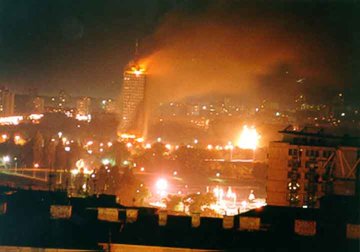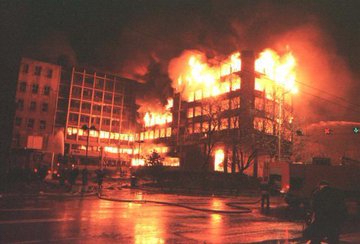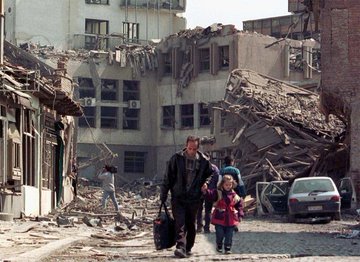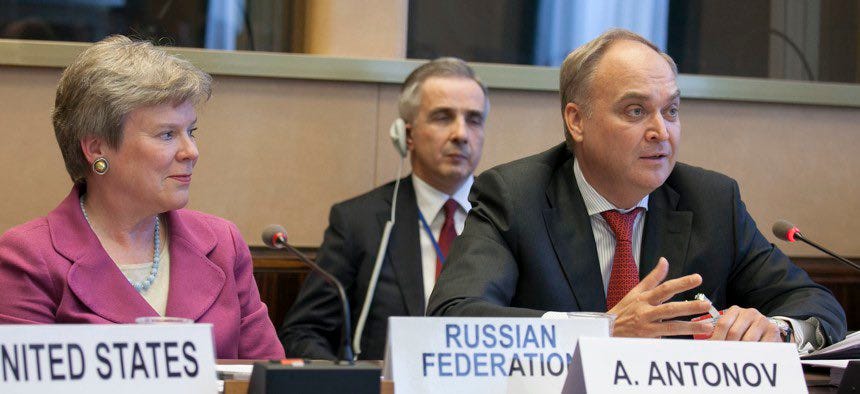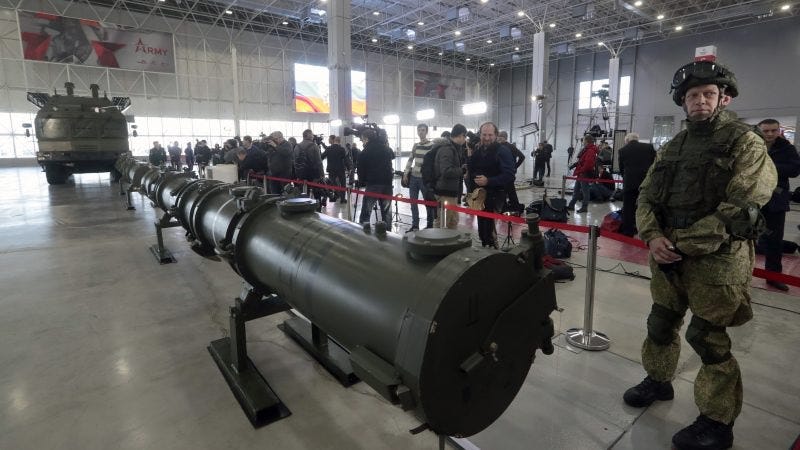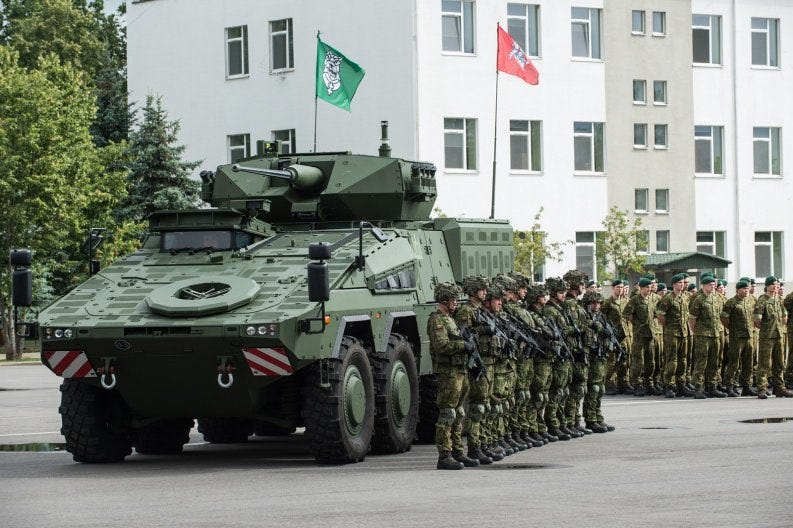BRICS
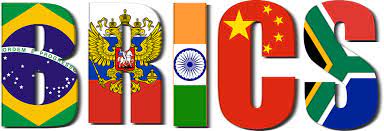
Learn #MMT
Warren Mosler
(http://www.collectedworksofwarrenmosler.com/)
Randall Wray
Randall Wray: Dirua hasiberrientzat
Randall Wray: Egin al dezakegu diruak guretzat lan egin dezan?
Randall Wray:
Jadanik aipatuak:
Randall Wray: dirua hasiberrientzat (elkarrizketa)
“Whaever is doable is financially affordable”, alegia, “Egingarria den edozer eskuragarria da finantzen aldetik.”
Randall Wray: nola MTM-k mundua salba dezakeen (elkarrizketa)
“Whar matters is resoursez, not money”, alegia, “Axola duena baliabideak dira, ez dirua.”
Hona hemen informazio pixka bat gehiago:
a) Randall Wray: Nola MTM-k mundua salbatu dezakeen
b) Randall Wray: MTM hasiberrientzat. Politikari baten gida
Randall Wray, berriro:
Randall Wray: Bankuak, FED eta monetarismoa
Segida:
Maria Zakharova.
Borrell: China is a real geopolitical player, while Russia is an economic dwarf, it’s like a gas station whose owner has an atomic bomb. In response,
I can say the following.
Firstly, people who cannot determine whether they are male or female would be better off keeping quiet until the final self-identification.
Secondly, the EU is like a bankrupt that went bankrupt, having ceased to refuel with high-quality fuel within its means. Our fuel is with us, and we also sell it. And the EU business has flowed overseas.
Thirdly, with regard to nuclear weapons, only one EU country has them. The rest never made it. There is nothing to be proud of, so they come out with anger.
So all this is said by Borrell out of envy and helplessness.
oooooo
Borrell: if Ukraine joined the EU, it would become the only net recipient of resources ( funds) , and all European countries would become net payers “If not for the war, it would have taken years for Ukraine to join the EU.”
oooooo
“Europe is a garden. We have built a garden. And the rest of the world, at least the main part of it, is the jungle. And the jungle could invade the garden,” – Josep Borrell Borrell can’t even correctly pronounce ‘Europe.’ What do you expect from him thinking correctly?
Bideoa, hemen: https://twitter.com/i/status/1692812122055417902
oooooo
So many lives wasted for the failed US foreign policy goal of ‘unbalancing Russia’. Now the West is unbalanced and Ukraine is wrecked. Always remember that a peace agreement between Russia and Ukraine was ready to be signed but Joe Biden told Zelenskyy ‘No peace with Russia’.

The West’s overall assistance to the Ukrainian President Vladimir Zelensky regime over the year of the special military operation exceeded 160 billion US dollars, Russian Foreign Minister Sergey Lavrov said: https://vk.cc/cqhFcV
oooooo
Ten outcomes of our talks with
Ulf Kristersson.
1. We agreed to work on the joint production of CV-90s armoured vehicles in Ukraine.
2. Ukrainian warriors began training to operate Swedish “Archers”.
- Ukrainian pilots are already taking part in testing “Gripen” fighter aircraft. We discussed further steps to transfer them to Ukraine.
- We are preparing the transfer of Sweden’s new, 13th security assistance package.
- Sweden joined the Peace Formula, more specifically its items on the restoration of nuclear safety, justice, environment protection, and humanitarian mine clearance.
- Ukraine will be ready to open EU accession talks this year and we have Sweden’s support on our path to the EU.
- Our teams will discuss the bilateral document on security guarantees following the G7 Declaration last month.
- Sweden stands ready to provide advanced water pumping systems to restore water supply after Russian terror act at the Kakhovka Hydroelectric Plant.
- Sweden will take active part in Ukraine’s recovery, including with the engagement of private capital.
- Ukraine counts on Sweden, Swedish regions and companies taking patronage over Ukrainian regions and spheres which require recovery after Russian strikes. I am grateful to Sweden for its firm and consistent support. Together, we protect life, freedom, and our common values.
Gehiago erakutsi
Bideoa, hemen: https://twitter.com/i/status/1692902867709882621
Oooooo
NEW – Germany is quietly building a “huge surveillance apparatus” that risks creating a denunciation culture similar to those of the Nazis and the Stasi, historian warns.
oooooo
Dmitry Medvedev talks about the inevitable, about what I have told you more than once. This war can only end with the victory of Russia. And there are no other options: “The defeat of the West in the Ukrainian direction is inevitable.
And let their leaders, who have forgotten about their own citizens, shout with each other that they will support the stubs of Ukraine with weapons and money for as long as it takes. They will train soldiers for the Kyiv meat-packing plant, they will restore the ruins of the dying economy of the Bandera regime. Will maintain insane sanctions against Russia. It won’t help. Why?
For them, this is a strange war in which people who are strangers to them are dying. And although they do not feel sorry for them, the West will never go beyond the fact that it will begin to harm its interests too much. No matter how loudly he laments at his summits and at the UN. Someone else’s war sooner or later becomes boring, costly and irrelevant.
And for us it is a tragedy involving our people. This is an existential conflict. War for self-preservation. Either they or we. Some time will pass. Western authorities will change, their elites will get tired and beg for negotiations and a freeze on the conflict. Any counteroffensive will fizzle out. The dead will be buried, the wounds will be licked.
But we must not stop until the current, inherently terrorist Ukrainian state is completely dismantled. It must be destroyed to the ground. Or rather, so that even the ashes from it did not remain. So that this abomination could never, under any circumstances, be reborn. If it takes years or even decades, then so be it. We have no choice: either we will destroy their hostile political regime, or the collective West will eventually tear Russia to pieces. And in this case, he will perish with us.
Nobody needs this.
Therefore, the only way is the complete disposal of the state machine of a hostile country and absolute guarantees of loyalty for the future. They can only give full control of Russia over the territories of the former Bandera state. And we will achieve this.” https://t.me/vicktop55/16535
oooooo
pocalypsis
pocalypseos
?@apocalypseos
Nicaraguan President Daniel Ortega has signed a decree authorizing the construction of Russian military bases in the country and the deployment of cruise missiles. The distance to Washington is 3,000 kilometers by air. Good evening, New York!
Bideoa, hemen: https://twitter.com/i/status/1692995231338360859
oooooo
Hungarian companies will expand their activities in Russia – Hungarian Prime Minister Viktor Orban.
At a meeting with the head of the Republic of Tatarstan Rustam Minnikhanov, the Hungarian leader said that Hungary would cooperate with Russia despite anti-Russian sanctions and political pressure.
oooooo
In the name of preventing Nazis, Germany is using the Nazi tactics of excluding opposing parties, making dissident speech criminal, and supporting wars against Russia. #ConfessionThroughProjection
oooooo
Don’t believe that NATO is a defensive alliance? Just ask the people of Serbia, Afghanistan and Libya. Or ask the people of the Donbas, where NATO is trying it’s damndest to reinstate the Azov genocide of 2014-2022.
Aipamena
NATO ACT@NATO_ACT
abu. 18
Let’s get our facts straight: #NATO is a defensive Alliance, aiming to safeguard its member nations. Check out @NATO website for facts on NATO – Russia relations: https://nato.int/cps/en/natohq/topics_111767.htm
#Myths
#WeAreNATO
oooooo
You should indeed beware of this barbarism if you really want to “get facts straight”
Aipamena
Wyatt Reed@wyattreed13
17 h
This is what Belgrade looked like after NATO “defensively” bombed it for 78 days, killing over 2,000 civilians twitter.com/nato_act/statu …
oooooo
And that doesn’t change the fact that Ukraine is loosing the war.
Nor the fact that Ukraine is founded on the ideology of the Nazi- supporting mass murderer Stepan Bandera.
Nor the fact of Ukrainian corruption.
But you do you.
I’m innocent.
Ukraine isn’t.
oooooo
Thousands of Nigeriens expressed their desire to stand up for the Motherland as volunteers. Crowds registered in Niamey today in response to an initiative to mobilize the population to defend the homeland in the event of an invasion by the Economic Community of West African States (ECOWAS). The Niger Volunteers campaign officially launched today, August 19th.
Bideoa, hemen: https://twitter.com/i/status/1693131591340765601
oooooo
Jackson Hinkle @jacksonhinklle
“Why did they throw all this away? Because those who represented Ukraine were only motivated by personal interests.” – Putin
Bideoa, hemen: https://twitter.com/i/status/1693057167790576061
oooooo
NATO bombed Libya 7,700 times over 7 months.
Aipamena
NATO ACT@NATO_ACT
abu. 18
Let’s get our facts straight: #NATO is a defensive Alliance, aiming to safeguard its member nations. Check out @NATO website for facts on NATO – Russia relations: https://nato.int/cps/en/natohq/topics_111767.htm#Myths
#WeAreNATO
oooooo
Mr. Borrell called Russia “a gas station with a nuclear bomb”. Did he want to insult Russia or simply outlined his perception of Russia? If the first is true, then the chief of the #EU foreign policy service isn’t a diplomat. If the second- there are huge gaps in his education.
oooooo
They’ll all be shot down within a month. It’s a safety blanket, an illusion of security, foisted on you by the same people that had you sacrifice more than 400,000 Ukrainian men in a failed NATO gambit for regional relevancy. Shame on you for allowing it to happen.
Oooooo
MMT (Modern Monetery Theory or Modern Mney Theory)
Zenbait zipriztin
If you believe that currency-issuing governments sell bonds to finance deficits or that deficits would be more inflationary without bond sales, then this thread is for you.
Aipamena
Stephanie Kelton@StephanieKelton
abu. 19
Interest Rates and Fiscal Sustainability “The orthodox conception of fiscal sustainability demonstrates a fundamentally flawed understanding of the interactions of the Fed, the Treasury, and private financial institutions within the U. S. financial system” https://papers.ssrn.com/sol3/papers.cf
oooooo
I want unlimited social services without limiting myself to what a UBI can pay for, because there’s nothing to stop the prices from rising and eating up all my money.
A UBI doesn’t guarantee me anything.
A UBI can be used to deny me social safety nets.
We can do better.
Aipamena
Nina Turner@ninaturner
abu. 15
Universal Basic Income isn’t just good policy, it’s increasingly necessary.
oooooo
ΛЦƧƬΣЯIƬY IƧ MЦЯDΣЯ@sdgrumbine
This series is a deep dive on the Federal Job Guarantee. With so many misrepresenting what it is and objecting to it without having given any effort to actually learn about it, this is a must listen to slaughter disingenuous attacks and outright lies. The Job Guarantee is vital!
Aipamena
Macro n Cheese Podcast #MMT@CheeseMacro
abu. 19
4 weeks of RP Book Club in one episode. The Case for a Job Guarantee by Pavlina R. Tcherneva. Featuring @FadhelKaboub, @ptcherneva, @autogestion77, @rohangrey #FJG #UBI #InvoluntaryUnemployment #PublicPolicy #MinimumWage #Labor
oooooo
$us are tax credits. Loans are financial assets. Tax payments are the deletion of tax credits.
oooooo
ΛЦƧƬΣЯIƬY IƧ MЦЯDΣЯ@sdgrumbine
This series is a deep dive on the Federal Job Guarantee. With so many misrepresenting what it is and objecting to it without having given any effort to actually learn about it, this is a must listen to slaughter disingenuous attacks and outright lies. The Job Guarantee is vital!
Aipamena
Macro n Cheese Podcast #MMT@CheeseMacro
abu. 19
4 weeks of RP Book Club in one episode. The Case for a Job Guarantee by Pavlina R. Tcherneva. Featuring @FadhelKaboub, @ptcherneva, @autogestion77, @rohangrey #FJG #UBI #InvoluntaryUnemployment #PublicPolicy #MinimumWage #Labor
oooooo
$us are tax credits. Loans are financial assets. Tax payments are the deletion of tax credits.
oooooo
Gehigarriak
Pavlina Tcherneva: Lan bermea eta MTM (Moneta-Teoria Modernoa)
Pavlina Tcherneva: Gobernuaren gastuaz eta pandemiaz geroztiko suspertzeaz
oooooo
Which nation is to blame for the collapse of US-Russian arms control?
a debate between Scott Ritter and Jeffrey Fischer
21 Aug 2023
US Ambassador Rose Gottemoeller (left) and Russian Ambassador Anatoly Antonov (right) at the New START negotiations
It is possible to have civil discussions about complex issues where two sides are in sharp disagreement. In the present matter, two individuals with relevant experience in the field of arms control have come together to debate the question, “Which nation is to blame for the collapse of US-Russian arms control?” Retired US Air Force Colonel Jeffrey Fischer argues that the blame falls on the shoulders of Russia, while Scott Ritter, a former weapons inspector, argues that it is the US who is at fault. Jeff and Scott agreed to each write 1,500-word arguments making their respective case, which were then exchanged “in the blind,” meaning neither had knowledge of the other’s position at the time they made their argument. They then each wrote a 500-word rebuttal. The product of this effort is provided here for others to read and form their own assessment regarding the question at hand. It is hoped that this type of professional, polite discourse can serve as an example of how difficult topics can be discussed void of the kind of rancor that often accompanies the issues that divide us.
Which nation is to blame for the collapse of US-Russian arms control?
The United States, as argued by Scott Ritter
The Russian 9M729 missile on display in Moscow, January 19, 2019
Introduction
The Cuban missile crisis of 1962 presented the United States and the Soviet Union with the reality that, void of meaningful arms control, both nations were on a trajectory that would lead to their mutual destruction. In the decades that followed, the US and the Soviet Union (and after its collapse, Russia) built a framework of arms control which significantly reduced the threat of nuclear conflict. In the post-Cold War era, however, this framework collapsed. A cursory review of the history of US-Russian arms control, focusing on three treaties (the ABM, INF, and New START) shows that this collapse is due exclusively to the actions of the US.
The Anti-Ballistic Missile (ABM) treaty
The decision by President George W. Bush, announced on December 13, 2001, to withdraw from the anti-ballistic missile (ABM) treaty represented the beginning of the end of the United States as a responsible actor in the field of arms control, and represents the initiating moment for the collapse of arms control as an institution between the US and Russia. Signed in 1972, the ABM treaty was regarded by arms control specialists in the US and Russia as the foundational document upon which all future arms control treaties between the two nations were based.
The ABM treaty was never a stand-alone agreement, but rather linked to the arms control postures assumed by both parties, starting from its very inception—the ABM treaty was signed at the same time as the interim agreement on Strategic Arms Reduction Talks (SALT), the first formal effort undertaken by the US and the Soviet Union to bring the nuclear arms race under control. Every arms control treaty that followed, up until President Bush’s precipitous decision to withdraw, was premised on the functionality of the ABM treaty, and the viability of the notion of mutually assured destruction (MAD) that the treaty promulgated.
The ABM treaty was intended to be of “unlimited duration,” permitting either party to withdraw only if “extraordinary events” jeopardized their “supreme interests.” President Bush’s citation of the threat posed by terrorists and rogue nations in the aftermath of the 9/11 terrorist attacks as fulfilling this requirement is unconscionable, especially when viewed from the perspective of the present times, when the threat of a general nuclear war between the US and Russia is as high as it has ever been. Any threat, real or imagined, that could have emerged in the aftermath of 9/11 pales in comparison to the threat of a general nuclear conflict. Preservation of the ABM treaty would have ensured a framework of arms control designed to reduce, not increase, the risk of nuclear conflict. This framework no longer exists due solely to the actions of the United States.
The Intermediate Nuclear Forces (INF) treaty
The deployment by the Soviet Union of the road-mobile SS-20 in the late 1970’s shifted the balance of power in Europe decidedly in their favor, prompting the US to deploy its own INF systems in response. The presence of these competing INF systems increased the prospects for a nuclear conflict, something neither the US nor the Soviet Union desired. After years of difficult negotiations, a treaty eliminating the totality of the INF systems in both the US and Soviet arsenals was signed by Ronald Reagan and Mikhail Gorbachev in 1987. This was the first-ever nuclear arms reduction treaty and was marked by the incorporation of intrusive on-site inspections into the processes of treaty verification.
The inspection phase of the INF treaty lasted 13 years, expiring in June 2001. During that time, both parties complied fully with their respective disarmament obligations. In 2007 US intelligence collected information on Russian missile testing which led analysts to believe the Russians were getting ready to produce a new missile, the 9M729, which could reach ranges greater than that permitted under the treaty. Early US protests lacked specificity—including the designation of the missile itself. In 2019, however, the US called out the 9M729 as the culprit, and used its existence as an excuse to withdraw from the INF treaty.
This precipitous act, done under the administration of President Donald Trump, had nothing to do with allegations of Russian treaty violations, and everything to do with the fact that the United States had found the INF treaty to be too constraining when it came to the exercise of American military power projection. The solution was simple—for the US to withdraw from the INF treaty, citing a Russian violation which, upon closer examination, did not exist.
The US has been reticent about sharing the intelligence used to assert its claim that the 9M729 missile operated in violation of the INF treaty. Russia was prepared to work with the US to resolve this issue, putting the 9M729 missile on display side-by-side with a 9M728 “Iskander-K” missile. The 9M728 has a range of less than 500 kilometers, making it INF compliant. The side-by-side comparison demonstrated the reality that the 9M729 and 9M728 used the same booster configuration, meaning that the propulsion system that powered the INF compliant 9M728 was identical to that which powered the 9M729. Moreover, the side-by-side comparison showed that both the guidance system and warhead for the 9M729 were larger, and as such weighed more than those of the 9M728. Simple physics dictates that a propulsion system configured to fly less than 500 kilometers when carrying a payload of x will have a reduced range if carrying a payload of x-plus.
The US prohibited any US or allied personnel from attending the Russian demonstration.
While the US denied that it was planning to deploy INF systems while the INF treaty was in effect, this posture was exposed as a lie when, less than three weeks after withdrawing from the INF treaty, it tested a cruise missile using the MK-41 Aegis Ashore platform.
New START
In the aftermath of the INF treaty, the US and Soviet Union moved forward on strategic arms reduction, signing two treaties (in 1991 and 1993, the second of which never entered into force) and negotiating a third in 1997 which was never concluded. The primary reason for the failure of the strategic arms reduction process to go forward was a fundamental rethink by the US national security establishment regarding arms control in the post-Cold War era, moving away from mutually beneficial arrangements to those that secured unilateral US advantage.
While the US and Russia concluded an agreement, the Strategic Offensive Reductions Treaty (SORT), in 2002, this was a very loosely structured agreement void of any comprehensive verification mechanisms. Moreover, the treaty did not require the elimination of nuclear warheads, but rather permitted them to be placed in storage, so the practical effect was no reduction in genuine capability. SORT is widely seen as a useless arms control vehicle that typified the US approach toward nuclear disarmament.
The START 1 treaty expired in 2009, and SORT in 2012. The Bush administration proved unwilling to commit the United States to a new comprehensive arms control agreement, so the burden fell on the administration of President Barack Obama to negotiate a follow-on arms control treaty with Russia. The result was the New START treaty, which was signed in 2010.
The Russians had initially refused to finalize any strategic arms reduction treaty unless the US was willing to incorporate limitations on ballistic missile defense (BMD). The Obama administration assured the Russians that they would engage on BMD in good faith, but that any such agreement would have to be separate from a nuclear arms reduction treaty if it were to be ratified by the US Senate. Russia agreed to de-link the two issues, only to be told by the US after New START entered into force that there could be no agreement on BMD.
Russia has likewise accused the US of negotiating in bad faith regarding decommissioning rules for B-52 bombers and Trident missile launch tubes; Russia wanted these systems to be permanently disabled, which met the intent of the treaty as negotiated, while the US implemented procedures which allow for the rapid activation of the decommissioned systems.
Conclusion
The US has shown itself to be a fickle partner when it comes to arms control, with a proclivity for exiting foundational arms control agreements when they are no longer deemed convenient to its goal of achieving unilateral superiority (the ABM and INF treaties), and for negotiating in bad faith when it comes to respecting Russia’s legitimate national security interests (New START).
The New START treaty expires in February 2026, and if no arms control vehicle can be negotiated to replace it, then the US and Russia will be locked in an arms race neither side can win, and which propels both nations down the path toward nuclear annihilation. As the party most responsible for the collapse of US-Russian arms control, the onus is on the US to alter its approach to arms control, reembracing past policies built on the principle of mutually beneficial reciprocity, and rejecting the current posture which seeks securing unilateral US advantage.
Col (Ret.) Fischer’s Rebuttal
Aside from failing to source his claims, Mr. Ritter’s essay contains convenient omissions, flawed logic, and misleading linkages. Here are some examples:
1. Conventional arms control (CAC) agreements remained understandably unaddressed. Presenting them would undermine his argument. As my essay explains, these instruments were functioning well up to 2014.
2. Mr. Ritter correctly presents the US withdraw from ABM in 2001. It was not, however, as he states, the ‘start of erosion.’ From 2001 until 2011, CAC functioned, and Russia willingly entered into New Start; demonstrating a decade of strengthening measures, not eroding.
3. Strangely, Scott states ABM was not standalone. Why is this acceptable for Russia’s ABM frustrations but not American’s and INF? Logically, either they both apply or neither do.
4. Humorously, Mr. Ritter knows his INF claims about the 9M729’s range are false. Given our prior service, we both know how the US derives a missile’s capabilities. Historically speaking, USG missile analysts have a ridiculously good track at assessing missile capabilities, usually within +/10%. To suggest analysts were off by 80% is comical. But even if USG missile analyst assessments were 50% in error, the missile would still violate INF… and did for years.
5. It’s disingenuous to suggest the 9M729’s & 9M728’s physical similarities equates to parallel capabilities under the guise of ‘simple physics.’ Because a WWII V2 rocket is 3x longer taller than an ATACMS doesn’t mean it flies 3x as far. A 9M729’s motor could have a modernized nacelle, a high efficiency thrust aperture or newer fuel compounds.
6. Stating that BMD and B52/Trident tubes were valid Russian frustrations in the New Start era lacks merit. In 2010, the USG openly addressed these points, a year prior to Medvedev signing the treaty. Which begs, why sign if these were sticking points? They weren’t, rather Russian efforts to move goalposts amid negotiations.
7. BMD has always been outside the scope of AMB. If Russia feared BMD, they had years to bilaterally reel in Iran, tamping down their hostile rhetoric. Russia made little effort to squelch their ally, Iran, into a cooperative partner in global peace. In hindsight, BMD was warranted given Iran’s activities juxtaposed with the current global security landscape.
8. Lastly, Mr. Ritter’s essay claims New Start expires in 2026, suggesting he’s unaware Putin withdrew from the treaty in Feb 2023. Putin’s rationale? One simple issue: Western support for Ukraine. True to form, Putin linked their hissy-fit-du-jour to an Arms Control Treaty. As for Scott’s handful of contentions with New Start? Putin raised none. Clearly to Putin, they weren’t the harbinger of treaty destruction Scott suggests.
Mr. Ritter will advocate as he wishes. I occasionally feel for those defending Russia. Following Moscow’s adlibbing and shifting narratives must be challenging. Bottom line: Russia’s only fair treaty is an advantageous one to Russia. Treaty balance for the greater good of humanity is a sucker’s game to Putin and the leaders of Russia.
Which nation is to blame for the collapse of US-Russian arms control?
Russia, as argued by Jeffrey Fischer, Colonel (Ret.), USAF
Lithuanian troops on parade
Russia’s Scuttling of Arms Control Instruments
As the 2011-2014 Senior DoD diplomat assigned to the OSCE 2011-2014, I witnessed firsthand Russia’s calculated, persistent, and unprofessional efforts to undermine long-standing arms control agreements. Without question, Russia is to blame for the methodical sabotaging of security instruments in Eurasia.
Background
As the DoD’s most senior official overseeing conventional arms control at OSCE, my position is highly relevant to this argument. After National Defense University, I was assigned to serve as Senior Military Advisor to the Chairman of the Joint Chiefs and US Ambassador to the OSCE. The OSCE oversees conventional arms control in Eurasia. I also attended nuclear arms control meetings, given the obvious ties. To this day, I still share relationships with US and international arms control experts to include Ambassador Rose Gottemoeller (US senior negotiator for New START).
Arms Control Instruments
Post Soviet collapse, several treaties were crafted, promoting transparency and security. These instruments made major contributions to Eurasian security and a basic overview is warranted.
The 1987 Intermediate Range Nuclear Forces (INF) Treaty eliminated all nuclear and conventional ground-launched ballistic and cruise missiles with ranges of 500 to 5,500 kilometers.
The 1992 Conventional Forces Europe (CFE) Treaty, a cornerstone of European Security, comprised 3 parts, inspections, caps on military hardware and an annual exchange of information.
The 1992 Open Skies Treaty enabled reconnaissance flights over the others’ territories to collect data on military forces and activities. On inspections, aircrew from each nation would jointly crew the inspection aircraft.
The 1990 (updated in 1999) Vienna Document facilitated a sharing of military information, such as exercise pre-notification as well as large-scale exercise observation.
The 2011 New START Treaty halved each nation’s strategic nuclear missile launchers and crafted a new inspection/verification regime.
2011
In 2011, the US/Russia arms control relationship was at a high watermark. New START Treaty’s ratification created optimism between Washington and Moscow. While other bilateral issues existed between Russia & the US, arms control remained fire-walled from them. In fact, Russia invested millions into a new Open Skies state-of-the-art aircraft. In the OSCE, Russian diplomats were constructive. The US and Russia OSCE delegations held such strong relations, they shared a monthly ‘ribs and beer’ dinner. Of note, as the most senior arms control diplomats, we had little decision authority. We implemented our nation’s directives, puppets to puppeteers. Executive branches and foreign ministries made arms control decisions. How well (or poorly) a state executed a treaty lied in the hands of political leaders. In that respect, Moscow, and more specifically, its current regime, owns the failed state of arms control.
One arms control sticking point remained. Given solid relations, the near 30 participating nations to the CFE Treaty hoped Russia would reconsider its odd position. In 2007, Russia ‘suspended’ participation, despite there being no such provision in the text. Nonetheless, participating states placated their suspension, hoping it was a phase. Suspension was advantageous to Moscow, which retained veto power over treaty decisions…decisions they were not subject to because of their suspension. For five years, state parties (to include NATO & non-NATO states) voluntarily shared military information during exchange, hoping Russia would return to implementation. As one Russian diplomat said during ribs and beer night, “CFE was a terrible deal for Russia. It exposed too much.” While international experts argue CFE was one of the most balanced treaties in existence, in Moscow, it was unfair. I, like many arms control colleagues, came to learn that to Russia, the only good treaty was one advantageous to Russia.
2012
In 2012, I attended a high-level intelligence briefing that would further erode the relationship. Russia had been testing nuclear capable missiles in obvious violation of the INF treaty. US leaders hotly debated recourse, deciding to confront Russia with the information. At every opportunity, US officials at the highest levels actively raised the issue. Foreign Minister Lavrov repeatedly dismissed it. For six years, the US exhaustively encouraged Russia to return to compliance until 2018, when the US finally withdrew from the treaty. It made no sense to remain unilaterally constrained by the treaty that only one side obeyed.
2013
US & European arms control officials hoped 2013 would be a turning point. Sadly, they were correct. Instead of Russia’s return to compliance, the year proved to be another symptom of an insecure Russia in decline. Ukraine assumed the OSCE Chairmanship. Throughout 2013, Russian diplomats became increasingly difficult to work with. They’d not return calls, intentionally miss meetings, and play other diplomatic games intended to frustrate. As an example, Senior Russian diplomat Anton M. would physically time every other nation’s critical comments about Russia. Then, he’d take the floor, speaking for the exact amount of time others criticized Russia. It may be humorous to some, but it was unprofessional and corrosive to arms control…Russia’s intent. OSCE states were continually forced to deal with such sophomoric actions when engaging with Russian colleagues.
As Open Skies member states worked to help Russia advance their new digital imaging aircraft (a first in the treaty), Russia was undermining the agreement. Russian flights remained unlimited in the US while Russian airspace restrictions grew. Moscow denied flights over Moscow and other strategically signification locations. Even with the ever-increasing Russian restrictions, other member states pressed on, hoping Russia was merely in a phase.
Later that year, the Maidan protests broke out in Kyiv. Questions arose if Ukraine should still host the OSCE Ministerial, which it chose to do. The US delegation, including myself, arrived in November. The Ministerial was horrible. Many diplomats still ponder if it was the worst seen to date. Russia stonewalled and vetoed every initiative, angered that Maidan was on display for western diplomats, and US delegation members provided food and water to protesters.
2014
The year started poorly and worsened. Longstanding arms control instruments designed to deter conflict failed due to Russia’s refusal to implement. As Russia forces massed and then invaded Crimea and Easter Ukraine, Russia refused any and all Vienna Document or Open Skies efforts. After the Crimea invasion, OSCE nations feverishly sought efforts to deescalate the issue. Many implored Russia to allow monitors into Crimea, to which Putin declared it was not Russia’s decision, but rather ‘little green men.’ An unarmed OSCE team of 37 officials from 18 nations attempted to enter Crimea. They were met by professional soldiers on hilltops pointing rifles and denied entry. Later, an unarmed and diplomatically protected inspection team attempted to enter Ukraine in accordance with treaty agreements. That team was to inspect a Crimean military facility. They were captured, held, interrogated and tortured by, what was at the time deemed little green men. The torture was so extreme, one member of the team was immediately medically retired.
Meanwhile, intelligence showed massing Russian forces nearing Ukraine’s eastern border. The Russian Ambassador to the OSCE Permanent Council (PC) dismissed commercial satellite images as forgeries. Later, an Open Skies flight captured images and shared them across the OSCE. At the next PC, the Russian Ambassador would be confronted. He never showed. Days later, Russia invaded. Had Russia observed the CFE Treaty or adhered to the Vienna Document, it would have been very difficult or impossible for it to launch its invasions into Ukraine.
The Unraveling
Today, Russia has abandoned INF, CFE, VDoc, Open Skies and New Start. Putin not only admits, but enjoys sharing the ‘little green men’ who tortured OSCE arms control inspectors were ‘of course, Russian soldiers.’ According to current US OSCE Ambassador Carpenter, his Russian counterpart has not attended one OSCE Permanent Council meeting during his two-year tenure. In fairness, the Russian Ambassador likely doesn’t make the decision of attendance, Moscow does. International diplomacy is a tightly controlled venture, from executive branches and foreign ministries. Just like the Russian Ambassador’s inability to attend an OSCE meeting, Russia’s Open Skies aircrew didn’t deny airspace, Moscow did. Russian military formations didn’t block authorized inspections, Moscow did. Russian military didn’t authorize intermediate missile testing in violation of INF, Moscow did.
Conclusion
Arms Control instruments increase the security of all nations by reducing the weapons aimed with adversarial intent. Implemented in good faith, they also make nations safer by reducing an adversary’s ability to harm the US or our allies. Conversely, in bad faith, they’re pointless. Treaties are only as strong as the paper they are written on, which can simply be ripped or tossed in a wastebin. Nations that skirt, cheat, inhibit, or ignore their agreements, exacerbate instability and frustrate those that play by the rules.
Disappointingly, the world must realize new arms control agreements are improbable in the near future. Putin’s admitted lies and reckless ignorance of security agreements (to include the Budapest Memorandum and Minsk Agreements) has destabilized the world order. Fundamentally, agreements are based on trust. Lacking that intrinsic quality, no agreement can be struck. Today, a handful of countries, believing they can trust Vladimir Putin, do so at their own peril.
The views expressed in this article are those of the author and do not reflect the official policy or position of the Department of Defense or the US government.
Scott Ritter’s Rebuttal
Context is everything.
In Colonel Fischer’s fascinating anecdotal-laced telling of his experiences as an OSCE arms control representative, Russia consistently comes off as the bad guy. I’ve seen this pattern before—during my time as an INF inspector, I was at the center of a diplomatic firestorm over the delayed installation of CargoScan, a giant X-Ray system intended to help differentiate between prohibited SS-20 missiles and permitted SS-25 missiles exiting the Votkinsk factory we were monitoring. Every US cable, white paper, classified report, and leaked media account put the blame for the delay in installing CargoScan on the Soviets. And yet, when the US and Soviet sides sat down to resolve the issue, it turned out that every Soviet objection was firmly grounded in the text of the INF Treaty. The Soviets, it turned out, had been right. We were wrong.
Context is everything.
Take, by way of example, the CFE Treaty. Colonel Fischer calls Russia’s 2007 decision to suspend its participation in the CFE Treaty “odd,” but provides no context as to why Russia took this action. The treaty was negotiated at a time when there were two competing blocs—NATO and the Warsaw Pact—and its purpose was to reduce the conventional arsenals of each bloc in a manner that was equitable. The dissolution of the Warsaw Pact, combined with the expansion of NATO, skewed the CFE Treaty decisively in favor of the US-led NATO bloc. The 1999 and 2004 NATO expansions put NATO equipment levels over CFE Treaty limits.
Moreover, NATO refused to factor the military equipment of the three Baltic nations that joined in 2004 (Latvia, Lithuania, and Estonia) into NATO force totals. NATO likewise refused to ratify the 1999 Adapted CFE Treaty, intended to rebalance conventional force levels in keeping with post-Cold War geopolitical realities. The NATO decision was political, not legal, linked to demands on Russia regarding troop withdrawal from Georgia and Moldova that had nothing to do with the actual provisions of the CFE Treaty.
The final straw was the 2006 decision by the US to put bases on the soil of Romania and Poland. The CFE Treaty prohibited the creation of permanent bases of this nature. The US contended that these bases were temporary, although the 2006 agreements creating these bases clearly called them “permanent.” The US and NATO were disingenuous in their implementation of the CFE Treaty, seeking to use the agreement as a means of achieving unilateral advantage over Russia. In this the US paralleled its posture regarding nuclear arms control.
On the CFE Treaty, and every other issue Colonel Fischer discusses in his well-written paper, the Russians had a fact-based, treaty-linked reason for doing what they did. The US did not. Arms control—conventional and nuclear—is needed today if we are to avoid a catastrophic conflict between the US and Russia. But it is the US, not Russia, that is to blame for the collapse of the former arms control regime.
Context, it seems, is everything.
Scott Ritter will discuss this debate and answer audience questions on Ep. 91 of Ask the Inspector.
The Scott Ritter Show Ep. 42 will stream on Rumble and Locals August 21 at 9 AM EDT. Special Guest: Vladimir Soloviev
Support Waging Peace, Scott Ritter’s film and campaign for nuclear disarmament:


